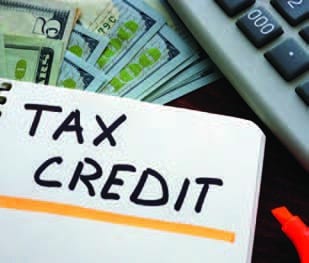
Protecting yourself from opportunistic fraud
The novel coronavirus (COVID-19) crisis has spurred much confusion and unprecedented economic challenges. It has also created ample opportunities for dishonest individuals and criminal organizations to prey on the anxieties of many Americans.
As the year rolls along, fraud schemes related to the crisis will continue as well, potentially becoming even more sophisticated. Here are some protective actions you can take.
Watch out for phony charities
When a catastrophe like COVID-19 strikes, the charitably minded want to donate cash and other assets to help relieve the suffering. Before donating anything, beware that opportunistic scammers may set up fake charitable organizations to exploit your generosity.
Fake charities often use names that are similar to legitimate organizations. So, before contributing, do your homework and verify the validity of any recipient. Remember, if you’re scammed, not only will you lose your money or assets, but those who would benefit from your charitable action will also lose out.
Don’t get hooked by phishers
In a “phishing” scheme, victims are enticed to respond to a deceptive email or other online communication. In COVID-19-related phishing scams, the perpetrator may impersonate a representative from a health agency, such as the World Health Organization (WHO) or the Centers for Disease Control and Prevention (CDC). They may ask for personal information, such as your Social Security or bank account number, or instruct you to click on a link to a survey or website.
If you receive a suspicious email, don’t respond or click on any links. The scammer might use ill-gotten data to gain access to your financial accounts or open new accounts in your name. In some cases, clicking a link might download malware to your computer. For updates on the COVID-19 crisis, go directly to the official websites of the WHO or CDC.
The IRS reports that its Criminal Investigation Division has seen a wave of new and evolving phishing schemes against taxpayers — and among the primary targets are retirees.
Shop carefully
In many parts of the United States, and indeed around the world, certain consumer goods have become scarce. Examples have included hand sanitizer, antibacterial wipes, masks and toilet paper. Scammers are exploiting these shortages by posing as retailers or direct-to-consumer suppliers to obtain buyers’ personal information.
Con artists may, for instance, claim to have the goods that you need and ask for your credit card number to complete a transaction. Then they use the card number to run up charges while you never receive anything in return.
Buy from only known legitimate businesses. If a supplier offers a deal out of the blue that seems too good to be true, it probably is. Also watch out for price gouging on limited items. If an item is selling online for many times more than the usual price, you probably want to avoid buying it.
Hang up on robocalls
You may have noticed an increase in “robocalls” — automated phone calls offering phony services or demanding sensitive information — since the COVID-19 crisis began. For instance, callers may offer COVID-19-related items at reduced rates. Then they’ll ask for your credit card number to “secure” your purchase.
Reputable companies, charities and government agencies (such as the IRS) won’t try to contact you this way. If you receive an unsolicited call from a phone number that’s blocked or that you don’t recognize, hang up or ignore it.
In addition, don’t buy into special offers for items such as COVID-19 treatments, vaccinations or home test kits. You’ll likely end up paying for something that at best doesn’t exist and at worst could harm you.
Tarnish their gold
For fraudsters, this year’s worldwide crisis is a golden

Don’t forget about the payroll tax credit
For many businesses, retaining employees has been difficult, if not impossible. If your company has been able to keep all or some of its workers, you may still be able to qualify for the payroll tax credit created under the Coronavirus Aid, Relief, and Economic Security (CARES) Act, known as the Employee Retention Credit.
Assessing your qualifications
The Employee Retention Credit is a refundable payroll tax credit for 50% of wages paid by eligible employers to certain employees. The credit is available to employers whose operations have been fully or partially suspended as a result of a government order limiting commerce, travel or group meetings during the novel coronavirus (COVID-19) crisis.
The credit is also available to employers that have experienced a greater than 50% reduction in quarterly receipts, measured on a year-over-year basis. When such an employer’s gross receipts exceed 80% of the comparable quarter in 2019, the employer no longer qualifies for the credit beginning with the next quarter.
Examining wages paid
For employers that had an average number of full-time employees in 2019 of 100 or fewer, all employee wages are eligible, regardless of whether an employee is furloughed or has experienced a reduction in hours.
For employers with more than 100 employees in 2019, only wages paid to employees who are furloughed or face reduced hours because of the employer’s closure or reduced gross receipts are eligible for the credit. No credit is available for wages paid to an employee for any period for which the employer is allowed a Work Opportunity Tax Credit with respect to the employee.
In the context of the credit, the term “wages” includes health benefits and is capped at the first $10,000 in wages paid by the employer to an eligible employee. Wages don’t include amounts considered for required paid sick leave or required paid family leave under the Families First Coronavirus Response Act. In addition, wages applicable to this credit aren’t taken into account for the employer credit toward paid family and medical leave.
Claiming advance payments and refunds
The IRS can advance payments to eligible employers. If the amount of the credit for any calendar quarter exceeds applicable payroll taxes, the employer may be able to claim a refund of the excess on its federal employment tax return.
In anticipation of receiving the credits, employers can fund qualified wages by 1) accessing federal employment taxes, including withheld taxes, that are required to be deposited with the IRS or 2) requesting an advance of the credit from the IRS on Form 7200, “Advance Payment of Employer Credits Due to COVID-19.” The IRS may waive applicable penalties for employers who don’t deposit applicable payroll taxes in anticipation of receiving the credit.
Obtaining relief
The credit applies to wages paid after March 12, 2020, and before Jan. 1, 2021. Contact our firm for help determining whether you qualify and, if so, how to claim this tax break.

Charitable giving in a time of crisis
The sudden and severe impact of the novel coronavirus (COVID-19) pandemic has created much financial stress, but the crisis has also generated an intense need for charitable action. If you’re able to continue donating during this difficult period, the Coronavirus Aid, Relief, and Economic Security (CARES) Act may make it a little easier for you to do so, whether you’re a small or large donor.
Tax benefits
From an income tax perspective, the CARES Act has expanded charitable contribution deductions. Individual taxpayers who don’t itemize can take advantage of a new above-the-line $300 deduction for cash contributions to qualified charities in 2020. “Above-the-line” means the deduction reduces adjusted gross income (AGI). You can take this in addition to your standard deduction.
For larger donors, the CARES Act has eased the limitation on charitable deductions for cash contributions made to public charities in 2020, boosting it from 60% to 100% of AGI. There’s no requirement that your contributions be related to COVID-19.
Careful steps
To be able to claim a donation deduction, whatever the size, you need to ensure you’re giving to a qualified charity. You can check a charity’s eligibility to receive tax-deductible contributions by visiting the IRS’s Tax-Exempt Organization Search.
If you’re making a large gift, it’s a good idea to do additional research on the charities you’re considering so you can make sure they use their funds efficiently and effectively. The IRS tool provides access to detailed financial information about charitable organizations, such as Form 990 information returns and IRS determination letters.
Even if a charity is financially sound when you make a gift, there’s no guarantee it won’t suffer financial distress, file for bankruptcy protection or even cease operations down the road. The last thing you likely want is for a charity to use your gifts to pay off its creditors or for a purpose unrelated to the mission that inspired you to give in the first place.
One way to manage these risks is to restrict the use of your gift. For example, you might limit the use to assisting a specific constituency or funding medical research. These restrictions can be documented in a written gift or endowment fund agreement.
Generous impact
Indeed, charitable giving is more important than ever. Contact our firm for help allocating funds for a donation and understanding the tax impact of your generosity.
Relief doesn’t apply to 2019 estimated tax payments
If you’re a gig worker or independent contractor, be advised that the tax relief related to the novel coronavirus (COVID-19) outbreak doesn’t apply to 2019 estimated tax payments or penalties for failure to timely make 2019 estimated tax payments. In other words, if you failed to make the required installments of estimated tax in the required amounts, the COVID-19-related relief doesn’t apply. However, you may seek relief under the normal rules by filing Form 2210, “Underpayment of Estimated Tax by Individuals, Estates, and Trusts,” or Form 2220, “Underpayment of Estimated Tax by Corporations.”

Installment sales may attract property buyers
Because of this year’s unforeseen economic slowdown, many businesses and individuals are unexpectedly looking for liquidity. One way to raise cash is to sell off real property such as land or a building. Finding a buyer may not be easy, but an installment sale might help.
An installment sale occurs when you transfer property in exchange for a promissory note and receive at least one payment after the tax year of the sale. Doing so allows you to receive interest on the full amount of the promissory note, commensurate with the installment payments received, often at a higher rate than you could earn from other investments — all while deferring taxes and improving cash flow.
An installment sale may appeal to buyers in today’s environment because, rather than having to pay for the property all at once, they can pay in installments. After all, even people or entities in a position to buy may wish to carefully manage their cash flow. This does present a risk for you, the seller: A buyer may not make all payments, and you may have to deal with foreclosure.
You generally must report an installment sale on your tax return under the “installment method.” Each installment payment typically consists of interest income, return of your adjusted basis in the property and gain on the sale. For each tax year in which you receive an installment payment, you must report as income the interest and gain components.
Calculating taxable gain involves multiplying the amount of payments received in the tax year, excluding interest, by the gross profit ratio for the sale. This isn’t a simple calculation, so be sure to obtain professional assistance when reporting an installment sale to the IRS. We’d be happy to help you decide whether one of these transactions is right for you and, if so, carry out and report the sale.
Tax Calendar
July 15* — Due date (without extension) for the following:
- 2019 individual income tax payments and return filing on Form 1040.
- 2019 calendar-year corporate income tax payments and return filing on Form 1120.
- 2019 estate and trust income tax payments and return filing on Form 1041.
- 2019 calendar-year exempt organization return filing on Forms 990 or 990PF and business income tax and other payments and return filings on Form 990-T.
- 2020 first and second quarter quarterly estimated income tax payments calculated on or submitted with Form 1040-ES (“Estimated Tax for Individuals”), Form 1041-ES (“Estimated Income Tax for Estates and Trusts”) and Form 1120-W (“Estimated Tax for Corporations”).
- If the monthly deposit rule applies, employers must deposit the tax for payments in June for Social Security, Medicare, withheld income tax and nonpayroll withholding.**
July 31 — The second quarter Form 941 (“Employer’s Quarterly Federal Tax Return”) is due. If you deposited the tax for the quarter in full and on time, you have until August 12 to file the return.
August 17 — If the monthly deposit rule applies, employers must deposit the tax for payments in July for Social Security, Medicare, withheld income tax and nonpayroll withholding.**
September 15 — Third quarter estimated tax payments are due for individuals, trusts and calendar-year corporations.
- If an extension was obtained, partnerships should file their 2019 Form 1065 by this date.
- If an extension was obtained, calendar-year S corporations should file their 2019 Form 1120S by this date.
- If the monthly deposit rule applies, employers must deposit the tax for payments in August for Social Security, Medicare, withheld income tax and nonpayroll withholding.**
September 30 — Calendar-year estates and trusts on extension must file their 2019 Form 1041.
* This list is not all-inclusive. See IRS Notice 2020-23, 2020-18 IRB 742 for more information.
** Any payroll taxes that are being deferred under the CARES Act or used as an advance payment for certain COVID-19-related credits don’t have to be made.
Note: It’s possible some of these due dates could be postponed (or postponed again). Contact our firm for the latest information.
About Batley CPA
Batley CPA, LLC is a full-service CPA firm providing tax, accounting, payroll and advisory services to businesses and individuals throughout Green Bay and the Fox Cities. Batley CPA regularly provides clients with best practices and strategies to maximize cash flow, profit, reduce taxes, manage costs and risk, and bring meaning to financial and operational data. The company has offices in Appleton, Neenah and Green Bay.

